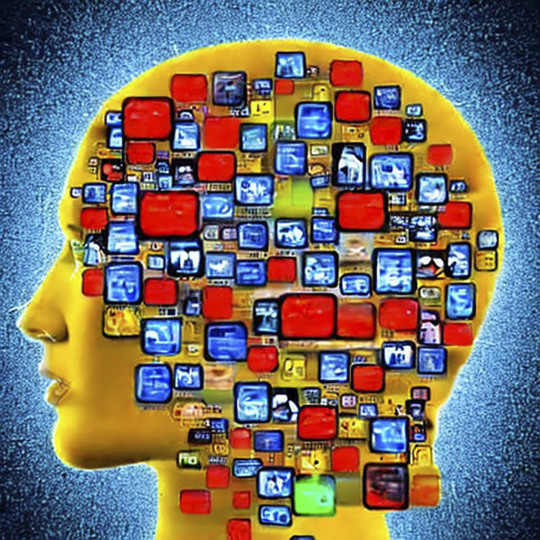#inteligence
Text

The Panther never lies!
113 notes
·
View notes
Text
Életem során soha nem versenyeztem más lányokkal, s tudd, hogy nem most fogom elkezdeni!
#érzelem#élet#fájdalom#szeretlek#magyar#magány#boldog akarok lenni#fáj az élet#sajat iras#sajatgondolat#lányok#verseny#miattad#akarlak#eletem#nem fogok#gyogyulas#győzelem#inteligence#inteligens#nők#sajat szoveg#saját#gondolataim#magyar tumblr
50 notes
·
View notes
Text
how big smart from a gifted silly who's on the edge of sanity but can't seem to break
You want to be big smart? This how big smart.
1. there's literally more than one type of intelligence so you probably already ARE big smart
schools are weird and can't seem to acknowledge that there is more than one type of intelligence, so don't feel bad if math or reading is hard! there's probably something you're already smart about that you don't even realize!
Gardner's Theory of Multiple Intelligences include:
visual-spatial (visualising, usually good with art)
linguistic-verbal (talking and understanding words, like essays, literacy skills)
logical-mathematical (math calculation and critical thinking)
body-kinesthetic (being in tune with your body, hand-eye coordination, sports)
musical (making music, recognizing rhythms, playing on-beat)
interpersonal (talking and understanding feelings, social skills, empathy, communication)
intrapersonal (being in tune with yourself and your feelings)
naturalistic (connection with nature)
2. see things from all perspectives
Person A's standpoint: Studying isn't necessary! Everything we need to know is taught in class. We don't have to take time out of our busy days to teach ourselves things we already understand.
Person B's standpoint: Studying is necessary! You can't possibly get everything in only one hour! Studying allows us to strengthen our understanding of the subject matter!
If Person A doesn't see Person B's perspective, they won't see that sometimes class time isn't enough for certain people to fully understand something. If Person B doesn't see Person A's perspective, they won't see that studying may be redundant if the information is already understood.
3. research things for no reason!
are you too existential crisis to sleep? use that!
What IS the meaning of life?
Life has no meaning? Nihilism! We create life's meaning? Existentialism! Philosophy is cool! Watch some crash course videos! Hank Green!
Resources of fun things to fun learn from!
I will add more if I can find! Both tips and fun learning resources!
#learning is fun#studyblr#studying#student#inteligence#learn#education#students#crash course#hank green#gifted kid burnout#gifted kid syndrome#gifted kid problems#gifted
11 notes
·
View notes
Text

remorse
#can you Tell this ask blog has infected my brain#Can You Tell#also i almost spelt it as remose#inteligence#puppet history#ask the substitute
22 notes
·
View notes
Text

Cornel West
Philosopher , social critic ,actor , public intelectual
very smart black man
portrait by
Technodrome1
#cornel west#social activist#black man#icon#american#smart#illustration#hero#speaker#inteligence#outspoken#drawing#painting#cutouts#3d
5 notes
·
View notes
Photo

2 Star commisioned intelegence officer Peoples Rebublic of South Korea Airforce - head of secret affairs, blackmail and counter inteligence 🤔
#hot korean girl#military lady#women in uniform#white shirt and tie#smart necktie#airforce#inteligence#blackmail#sectret affair
30 notes
·
View notes
Text
I think this applies to more than just investing…
8 notes
·
View notes
Text

Inteligence
[A.I. image generated by Stable Diffusion] 2023
1 note
·
View note
Text

𝐄-𝐆𝐚𝐦𝐢𝐧𝐠 𝐏𝐥𝐚𝐭𝐟𝐨𝐫𝐦
Provides an e-Gaming streaming platform that leverages AI to provide recommendations to gamers to enhance engagement, improve their e-Gaming skills, and monetize their online e-Gaming time
#egaming#streaming#gamers#online#ai#esports#factionai#enhance#skills#onlinegame#king#esportslife#gaminglife#gamingcommunity#socialmedia#instagram#love#inteligence#artificial#games#egamers
0 notes
Text
"A mind is a terrible thing to waste, especially in ignorance and mindless conformity."
1 note
·
View note
Text
History: Neurotechnology and National Security: The Risks and Concerns of Misuse
Neurotechnology is a rapidly developing field that has captured the attention of various intelligence organizations. The history of US intelligence agencies' involvement with neurotechnology can be traced back to the 1950s when the CIA began experimenting with mind control techniques, including the use of psychoactive drugs like LSD. In the decades that followed, the agency continued to fund research into behavioral modification and behavioral modification, including projects such as MK-Ultra, which were eventually exposed in the 1970s.
In more recent years, the Department of Defense has taken a particular interest in neurotechnology, investing millions of dollars into programs that aim to develop brain-computer interfaces and other forms of advanced prosthetics. The ability to monitor and influence neural activity could provide a distinct advantage in terms of intelligence gathering. Still, it also raises ethical concerns about individual rights and privacy.
Despite the potential benefits of neurotechnology, its misuse has raised concerns. One particular concern is the potential for it to be used as a targeted assassination tool against dissidents and influential individuals. Intelligence agencies could potentially use neurotechnology to influence the decision-making of leaders, causing them to make decisions that were in the agency's interest rather than the people they were guiding. This could ultimately lead to widespread civil unrest and protests, resulting in the unnecessary pain and suffering of countless families.
It's essential to prioritize ethical considerations and transparency in the development and use of neurotechnology. The history of US intelligence organizations' involvement with behavioral modification techniques underscores the importance of ethical considerations and transparency in the development and use of this technology. It's imperative that we remain vigilant and take steps to prevent its misuse, to ensure that it's used for the benefit of society and not to the detriment of individual rights and privacy.
Global Research
Neurotechnology is a field that has rapidly developed worldwide and has been explored by various countries. Here are some examples of the history of neurotechnology research in other parts of the world:
Russia: The Soviet Union was one of the first countries to explore the use of brain implants. In the 1970s, a team of Russian scientists developed a device called the "Stimulator of the Brain" that could be implanted in the skull to stimulate the brain's pleasure center. The device was used to treat depression, alcoholism, and other mental disorders. However, the use of brain implants for political purposes was also explored, with the aim of controlling the behavior of individuals.
China: In recent years, China has become a major player in the field of neurotechnology. In 2015, the Chinese government launched a multi-billion dollar initiative called the Brain Project, which aims to develop new therapies and technologies for the treatment of neurological disorders. Chinese researchers have also been exploring the use of brain implants for the treatment of depression and other mental disorders.
Israel: The Israeli military has been using brain imaging technology for several years to monitor soldiers' stress levels and assess their combat readiness. The technology uses functional magnetic resonance imaging (fMRI) to measure changes in blood flow to different parts of the brain, which can indicate whether a soldier is under stress or not.
Japan: Japanese researchers have been exploring the use of brain-machine interfaces (BMIs) for several years. In 2008, a team of Japanese scientists developed a BMI that allowed a monkey to control a robotic arm using only its thoughts. The technology has since been refined, and there are now several companies in Japan that are developing BMIs for use in humans.
Neurotechnology is an exciting field that has attracted the attention of various intelligence organizations and private companies in the United States. Over the years, many private companies have invested heavily in neurotechnology research, including developing brain-computer interfaces and other forms of advanced prosthetics. These innovations have shown great promise in improving the lives of individuals with disabilities and injuries.
One of the earliest private companies to delve into neurotechnology was Cyberkinetics Neurotechnology Systems. Founded in 2001, the company aimed to develop brain-computer interfaces that would enable paralyzed individuals to control a computer cursor or even robotic limbs using their thoughts. The company's flagship product was the BrainGate Neural Interface System, which was first implanted in a human patient in 2004. The BrainGate system enabled individuals with spinal cord injuries and other conditions to move a cursor on a computer screen or control a robotic arm using their thoughts.
Another major player in the field of neurotechnology is Neuralink, founded by entrepreneur and inventor Elon Musk in 2016. Neuralink's goal is to develop brain-machine interfaces that will allow humans to communicate directly with computers and other devices. The company's first product, the N1 implant, was introduced in 2019 and has been tested in pigs. Musk has also suggested that Neuralink's technology could eventually be used to treat a range of neurological conditions, including dementia and depression.
Private companies aren't the only ones investing in neurotechnology research in the United States. The Defense Advanced Research Projects Agency (DARPA), a research and development agency of the U.S. Department of Defense, has been investing in neurotechnology for decades. In the 1970s, DARPA funded the development of the first neuroprosthetic devices, which enabled individuals with amputations to control prosthetic limbs using neural signals. More recently, DARPA has invested in research into brain-machine interfaces and neuroplasticity, the brain's ability to adapt and reorganize in response to changes in the environment.
The potential benefits of neurotechnology are enormous, but the technology also poses significant risks. As with any new technology, concerns have been raised about the potential for misuse, such as the use of brain-computer interfaces for surveillance or behavioral modification. It's important for private companies and government agencies to prioritize ethical considerations and transparency in the development and use of neurotechnology to ensure that it's used for the benefit of society and not to the detriment of individual rights and privacy.
In conclusion, neurotechnology is a rapidly developing field that has captured the attention of various intelligence organizations, private companies, and governments worldwide. The potential benefits of neurotechnology are enormous, with the ability to improve the lives of individuals with disabilities and injuries, and advance treatments for neurological disorders. However, there are significant risks associated with neurotechnology, including the potential for misuse, such as the use of brain-computer interfaces for surveillance or behavioral modification. It's crucial that ethical considerations and transparency are prioritized in the development and use of neurotechnology to ensure it's used for the benefit of society and not to the detriment of individual rights and privacy. As the field continues to progress, it's essential to remain vigilant and take steps to prevent its misuse.
1 note
·
View note
Text
Sometimes I think I'm dumb. Than I think I'm not.
I conclude that I have low IQ. But it's high enough to know I'm dumb, and high enough to do some shit without anyone's help.
0 notes
Text
The Underside of The 7th Realm
The Underside of The 7th Realm
Een Creatief Project van mij :)
(its a bit creepy tho)
https://www.reddit.com/r/undersideof7threalm/
https://discord.gg/eAyqsnBCV2
#horror#alien#tentacles#squid#ai#ai art#artificial intelligence#artificial#inteligence#nlp#Natural language processing#neural#deep ai#language neural network#neural networ#art#kunst#tentacle#lovecraft#photography#lovecraftian
0 notes
Text
Clip: Musk Shuts Down Starlink In Crimea Over Fear of Nuclear War (Clean)
#doccomeau#entertainment#germany#inteligence#kremlin#moscow#nato#news#podcast#podcasts#politics#putin#russia#thatsonpoint#thatsonpointllc#thoughtoftheday#top#ukraine#us#washington
0 notes
Text
We are the most intelligent beings on earth.
However, as to whether we are the most sentient beings - I would have doubts ...

0 notes
